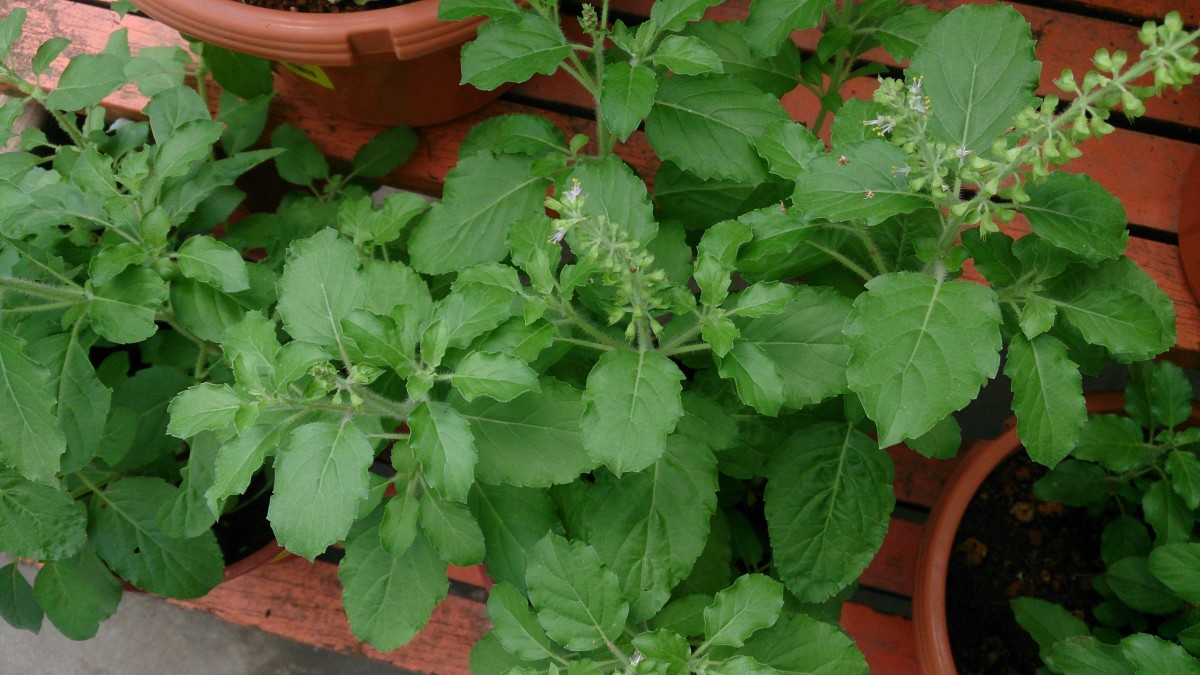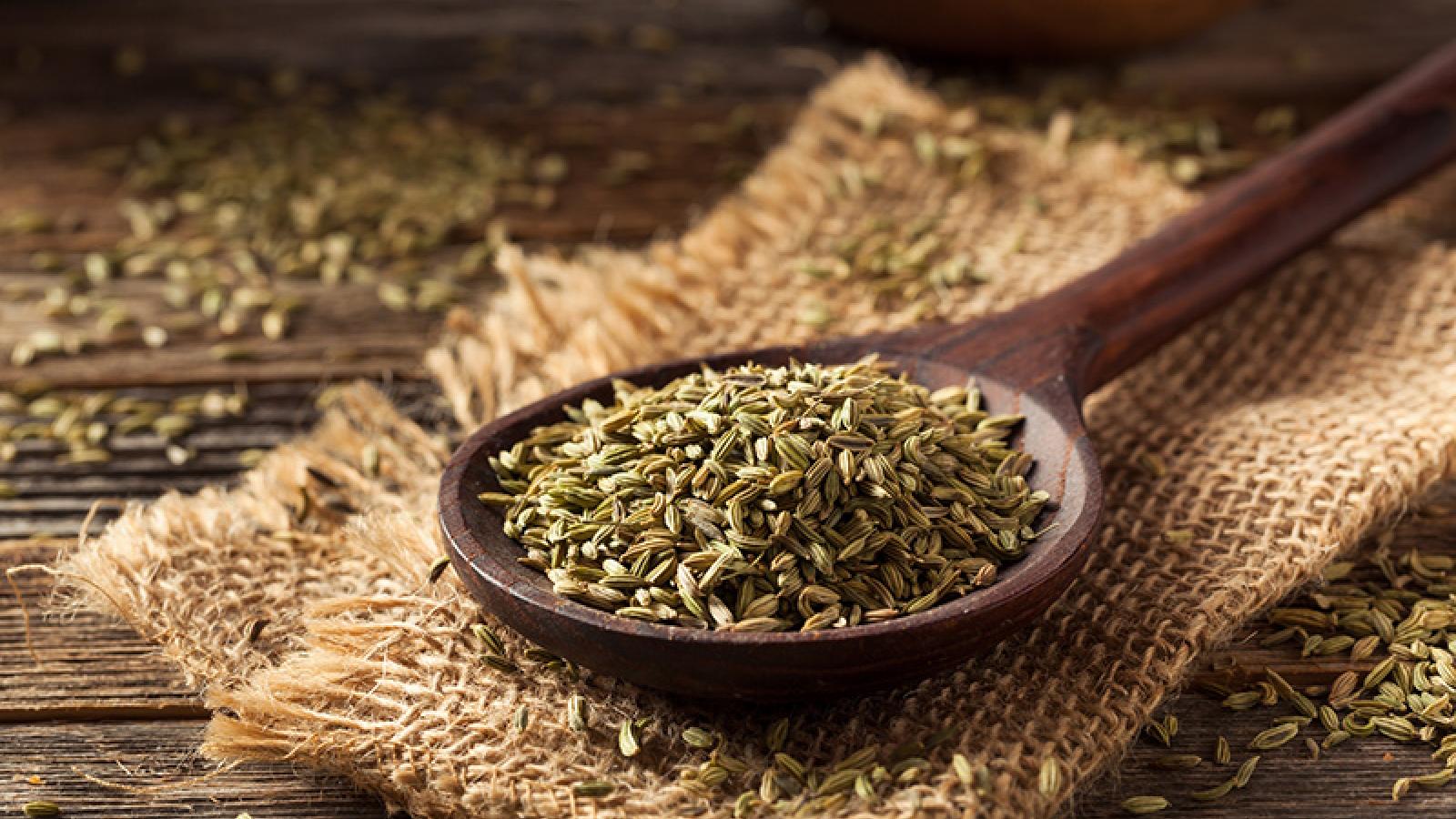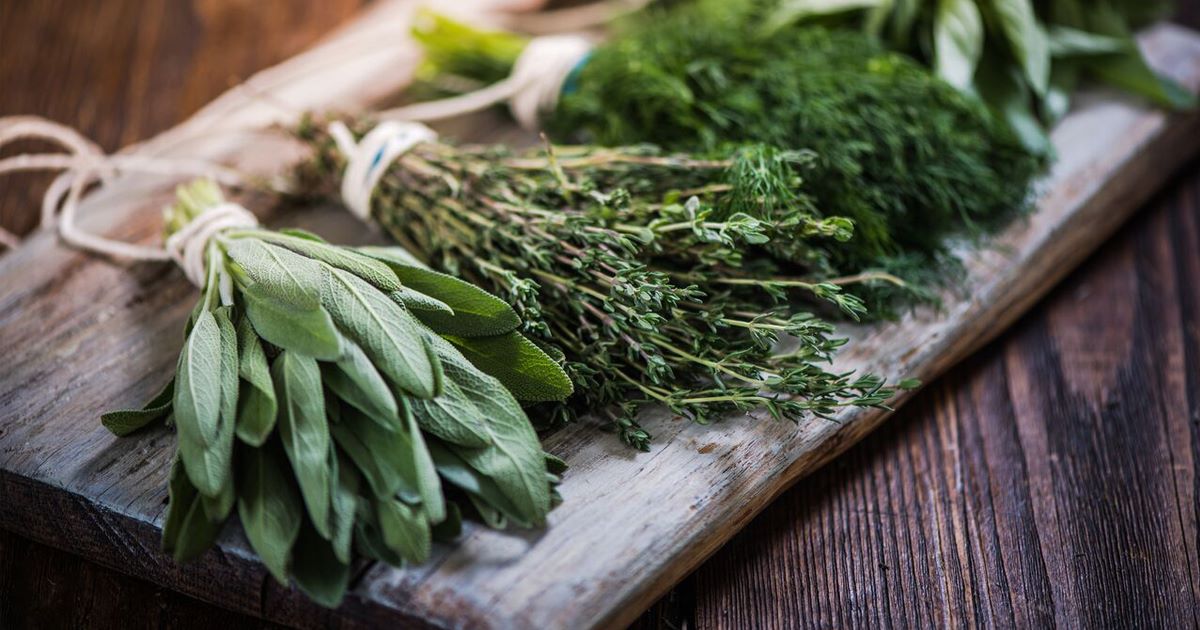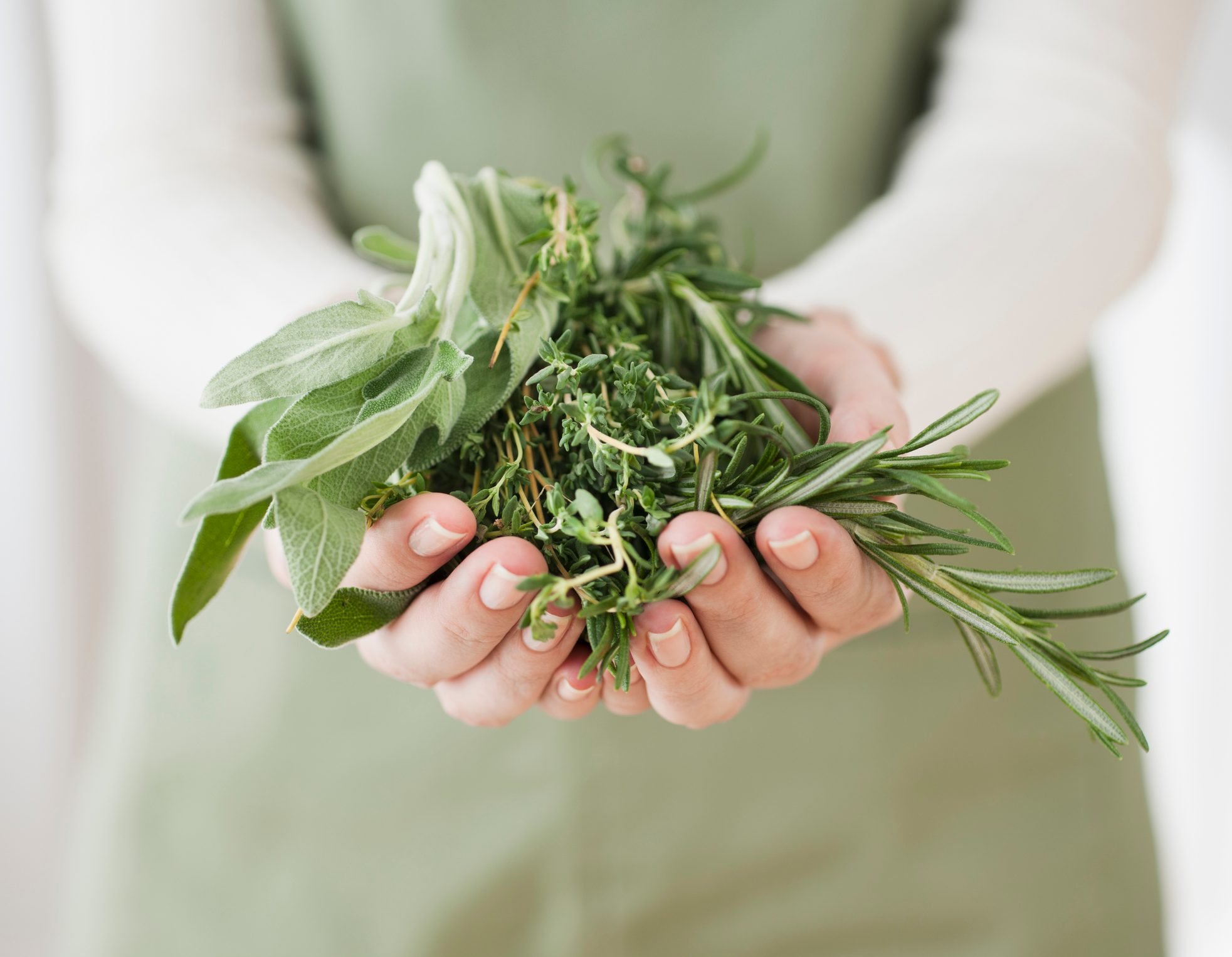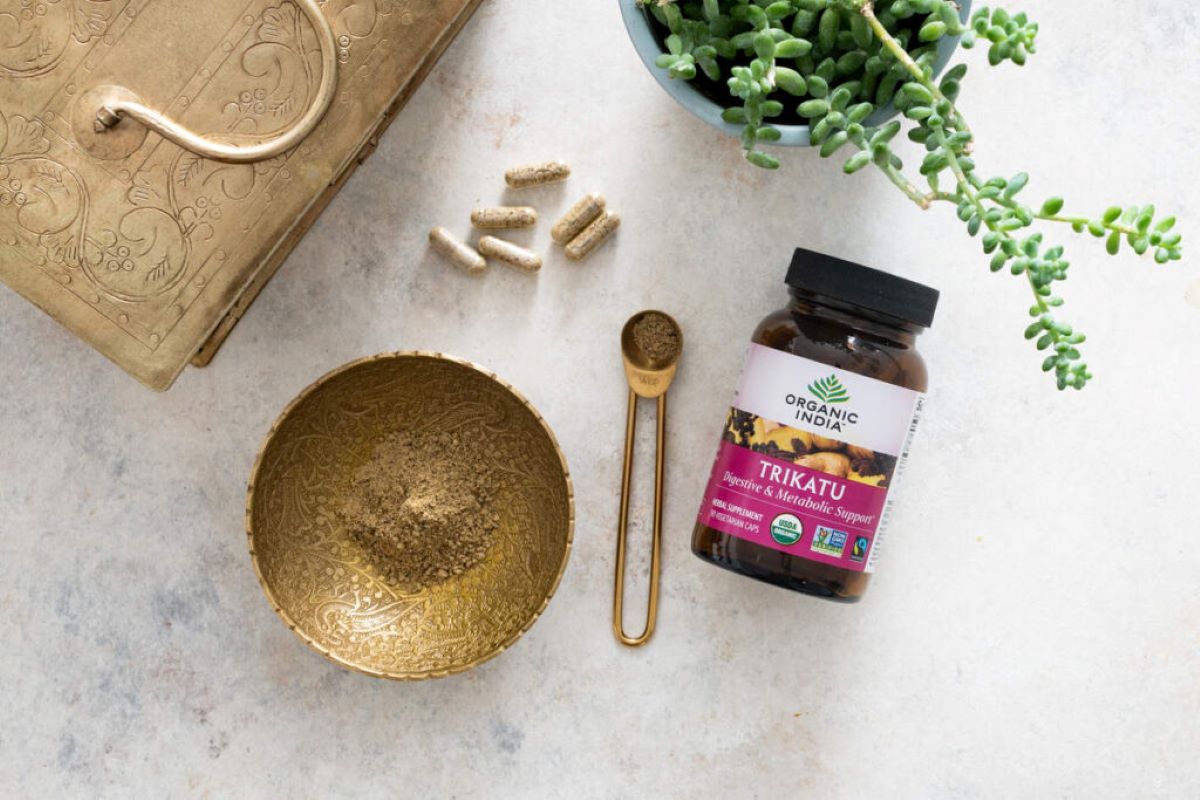Home>Gardening News and Trends>Gardening Trends>What Herbs Are Not Good For Dogs
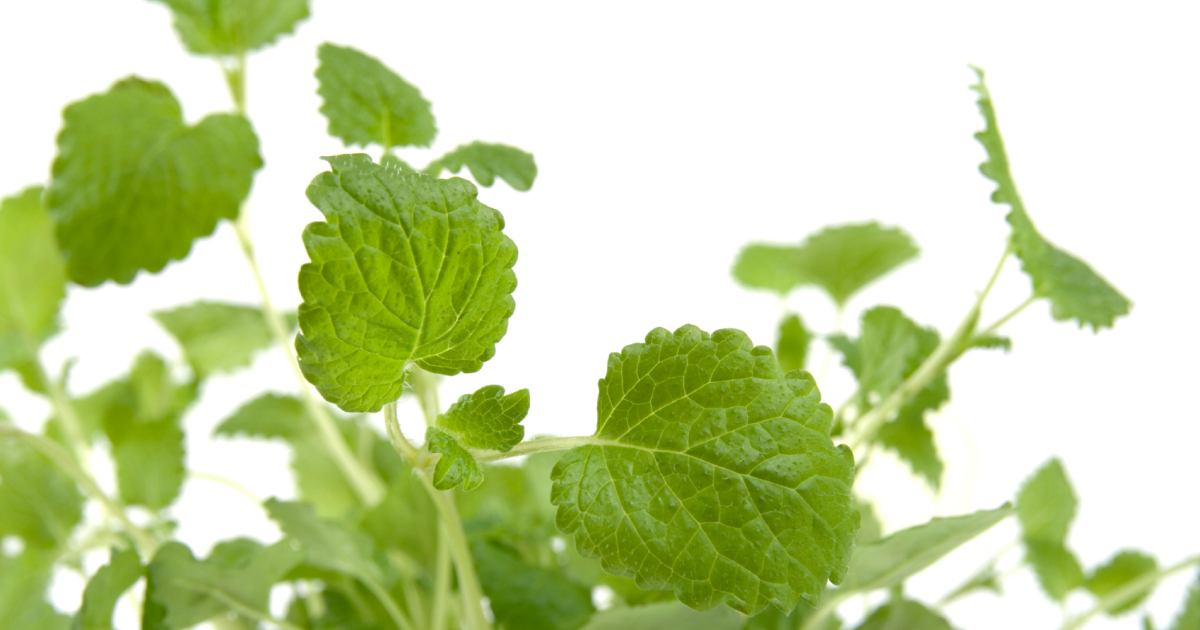

Gardening Trends
What Herbs Are Not Good For Dogs
Published: September 29, 2023
Looking for the latest gardening trends? Discover what herbs are not good for dogs and keep your furry friends safe in your garden.
(Many of the links in this article redirect to a specific reviewed product. Your purchase of these products through affiliate links helps to generate commission for Chicagolandgardening.com, at no extra cost. Learn more)
Table of Contents
Introduction
Welcome to the world of herbs and the intriguing possibilities they offer for our furry friends, dogs. Herbs have long been used for their medicinal and culinary properties, providing a natural and holistic approach to health and wellness. However, when it comes to our four-legged companions, not all herbs are safe or suitable. It’s important for dog owners to be aware of which herbs can pose potential risks or be harmful to their dogs.
Just as some plants can be toxic to humans, certain herbs may have adverse effects on dogs, ranging from digestive issues to organ damage. In this article, we will explore the potential dangers of herbs for dogs, highlighting specific herbs that should be avoided and those that are safe and beneficial for our canine companions. By understanding these risks and benefits, dog owners can make informed decisions about incorporating herbs into their pets’ diets or healthcare routines.
Before we delve into the specific herbs, it’s crucial to note that every dog is unique, and their tolerance or reaction to herbs may vary. It’s always recommended to consult with a veterinarian before introducing any new herb or supplement into your dog’s routine. This ensures that any potential interactions, contraindications, or adverse effects can be evaluated and personalized recommendations can be provided.
Now, let’s dive into the potential dangers of herbs for dogs and learn which herbs should be avoided and which ones are safe for our furry friends.
Potential Dangers of Herbs for Dogs
While herbs can provide numerous health benefits for humans, it’s important to remember that dogs have different metabolisms and sensitivities. Some herbs that are commonly used in human remedies or culinary applications may pose potential dangers to dogs. Understanding these dangers can help prevent any adverse reactions or health issues in our canine companions.
One of the primary concerns when it comes to herbs and dogs is toxicity. Some herbs contain compounds that can be toxic to dogs, causing a range of symptoms from mild gastrointestinal upset to more severe complications. It’s crucial to be aware of specific herbs that may be harmful to dogs and to avoid using them in any form, whether fresh, dried, or in concentrated oils or extracts.
In addition to toxicity, certain herbs may also interact with medications or exacerbate underlying health conditions in dogs. For example, dogs with liver or kidney diseases may be more susceptible to adverse effects from certain herbs. Therefore, it’s essential to consult with a veterinarian before introducing any herbs or supplements into your dog’s routine, especially if your dog has pre-existing health conditions or is taking any medications.
Furthermore, some herbs may have specific side effects on dogs, even if they are not necessarily toxic. These side effects can range from mild to more severe, depending on the herb and the individual dog’s sensitivity or susceptibility. Common side effects may include gastrointestinal disturbances, allergic reactions, increased or decreased blood pressure, neurological effects, or hormonal imbalances.
It’s important to note that the dangers of herbs for dogs are not limited to their ingestion. Some herbs can also be harmful if applied topically, as dogs may ingest them while grooming. Therefore, it’s essential to be cautious when using any herb-infused products on your dog’s skin or coat, such as shampoos or sprays.
By understanding the potential dangers of herbs for dogs, we can take necessary precautions and protect our furry friends from any adverse effects. In the following sections, we will highlight specific herbs that should be avoided and discuss the potential side effects of certain herbs on dogs.
Herbs to Avoid Giving to Dogs
When it comes to herbs, it’s crucial to know which ones are not safe for our dogs. While some herbs are harmless to humans, they can pose a risk to our furry friends. Here are some common herbs that should be avoided when it comes to giving them to dogs:
- Garlic and Onion: While these may add flavor to our meals, garlic and onion can be toxic to dogs. They contain compounds that can damage a dog’s red blood cells, leading to anemia. It’s essential to remember that even small amounts can be harmful, so it’s best to avoid feeding your dog any foods or supplements containing garlic or onion.
- Xylitol: While not an herb, xylitol is worth mentioning as it can be found in certain herbal supplements or products. Xylitol is a sweetener commonly used in sugar-free products, but it can be toxic to dogs. It can cause a sudden release of insulin, leading to a dangerous drop in blood sugar levels. Always check the ingredients of any herbal products for the presence of xylitol and avoid giving your dog anything containing it.
- Grapes and Raisins: These seemingly harmless fruits can actually cause kidney failure in dogs. The exact substance in grapes and raisins that is toxic to dogs is still unidentified, and the reaction can vary from dog to dog. To be safe, it’s best to avoid giving your dog any grapes or raisins, including those that may be found in certain herbal blends or products.
- Chocolate: Although not an herb, chocolate is worth mentioning as it can be present in certain herbal treats or supplements. Chocolate contains theobromine, which is toxic to dogs. It can cause symptoms such as vomiting, diarrhea, rapid breathing, increased heart rate, and even seizures or death. Make sure to keep any chocolate-containing herbal products well out of your dog’s reach.
- Yarrow: Yarrow is an herb often used for its anti-inflammatory properties in humans, but it can cause a range of symptoms in dogs. Ingesting yarrow can lead to gastrointestinal upset, hypersalivation, dermatitis, and even liver damage. It’s best to avoid using yarrow-based products on or around your dog.
These are just a few examples of herbs to avoid giving to dogs. It’s important to carefully read the ingredients of any herbal products or supplements before giving them to your dog and to be aware of any potential risks associated with specific herbs. When in doubt, it’s always better to consult with a veterinarian to ensure the safety and well-being of your furry friend.
Toxic Herbs for Dogs
While many herbs can provide remarkable health benefits for humans, there are specific herbs that are known to be toxic to dogs. These herbs should be avoided entirely to prevent any harm to our furry companions. Here are some of the toxic herbs for dogs:
- Lilies: Lilies are highly toxic to dogs, especially certain species such as Easter lilies, tiger lilies, and daylilies. Ingesting any part of the lily plant, including the petals or pollen, can cause severe kidney damage and even kidney failure in dogs. Even a small amount of lily ingestion can be life-threatening, so it’s crucial to keep lilies out of your dog’s reach.
- Chrysanthemums: Chrysanthemums, often used as decorative plants, contain a compound called pyrethrin. While pyrethrin is generally safe for humans, it can be toxic to dogs. Ingesting chrysanthemums can lead to symptoms such as gastrointestinal upset, excessive drooling, lack of coordination, and even tremors or seizures.
- Azaleas and Rhododendrons: These colorful and popular flowering shrubs contain toxins called grayanotoxins. Ingesting any part of the azalea or rhododendron plant can cause symptoms such as digestive issues, excessive salivation, weakness, abnormal heart rate, and even coma or death in severe cases.
- Foxglove: Foxglove, also known as Digitalis, contains compounds called cardiac glycosides. While these compounds have medicinal uses in human medicine, they are toxic to dogs. Ingesting any part of the foxglove plant can cause symptoms such as vomiting, diarrhea, abnormal heart rate, tremors, and even heart failure.
- Autumn Crocus: The autumn crocus, also known as Meadow saffron or Colchicum autumnale, contains a toxic compound called colchicine. Ingesting any part of the plant can cause symptoms such as vomiting, diarrhea, abdominal pain, and organ damage.
These are just a few examples of toxic herbs for dogs. It’s essential to research and be aware of any potential toxicity associated with specific herbs before introducing them into your dog’s environment or using them in any herbal products. If you suspect your dog has ingested a toxic herb, it’s crucial to seek immediate veterinary attention.
Remember, prevention is key when it comes to keeping our dogs safe from toxic herbs. Always be cautious about the plants and herbs you have in your home or garden, and ensure that your dog does not have access to any potentially harmful plants or herbs.
Side Effects of Certain Herbs on Dogs
While not all herbs are toxic to dogs, certain herbs may still have side effects that can impact their well-being. It’s important to be aware of these potential side effects when considering the use of herbs for dogs. Here are a few examples of herbs that can cause side effects in our canine companions:
- Parsley: Parsley is commonly used as a garnish or flavoring herb in cooking. While it’s generally safe for dogs in small amounts, excessive consumption of parsley can sometimes lead to an upset stomach or gastrointestinal irritation. If using parsley as an herbal supplement for dogs, it’s best to do so in moderation and monitor your dog’s response.
- Valerian: Valerian is an herb often used to promote relaxation and reduce anxiety in humans. While it can have a calming effect on dogs as well, some dogs may have an adverse reaction to valerian. These reactions may include increased excitability, digestive upset, or even an opposite effect of increased hyperactivity. Each dog may react differently, so it’s important to carefully observe your dog when using valerian as a calming aid.
- St. John’s Wort: St. John’s Wort is a popular herb used for its mood-enhancing properties in humans. However, it’s not recommended for dogs as it can potentially cause digestive upset, skin sensitivity, or an adverse reaction with certain medications. It’s best to consult with a veterinarian before giving your dog any herbal products containing St. John’s Wort.
- Eucalyptus: Eucalyptus is often used for its respiratory benefits in humans, but it can be irritating to dogs if inhaled or ingested in high amounts. It may cause symptoms such as drooling, vomiting, or diarrhea. When using eucalyptus-based products or diffusing eucalyptus essential oils around dogs, it’s crucial to do so in a well-ventilated area and in moderation.
- Pennyroyal: Pennyroyal, an herb commonly used for its insect-repellent properties, can be toxic to dogs if ingested. It can cause symptoms such as gastrointestinal upset, liver damage, and even seizures. It’s best to avoid using pennyroyal products on or around dogs to avoid any potential harm.
It’s important to note that the side effects of herbs on dogs can vary depending on factors such as the dog’s size, overall health, and individual sensitivity. It’s always recommended to start with small amounts when introducing any herb to a dog and carefully monitor their response. If you notice any adverse effects or if your dog’s condition worsens, discontinue the use of the herb and consult with a veterinarian.
Remember, every dog is unique, and what may be safe or beneficial for one dog may not be the same for another. It’s important to consider your dog’s specific needs, health conditions, and any medications they may be taking when determining the appropriate use of herbs.
Safe and Beneficial Herbs for Dogs
While there are herbs to avoid or be cautious about when it comes to dogs, there are also several herbs that are safe and beneficial for our furry friends. These herbs can provide various therapeutic properties and support their overall health and well-being. Here are some examples of safe and beneficial herbs for dogs:
- Chamomile: Chamomile is known for its calming properties and can be used to help soothe dogs with anxiety or digestive issues. It can be given as a tea or in capsule form. Chamomile can promote relaxation, relieve upset stomachs, and even aid in minor skin irritations.
- Calendula: Calendula, also known as marigold, has anti-inflammatory and wound-healing properties. It can be used topically to soothe skin irritations, minor cuts, and hot spots in dogs. Calendula is gentle and safe for most dogs, but it’s always best to test a small patch of skin first to ensure there is no allergic reaction.
- Nettle: Nettle is a nutrient-rich herb that can provide several health benefits for dogs. It is known to support healthy kidney function, reduce inflammation, and promote a shiny coat. Nettle can be used as a tea or added to your dog’s food in dried or powdered form.
- Dandelion: Dandelion is a detoxifying herb that can support liver and kidney function in dogs. It can help with digestion, stimulate appetite, and even provide relief from seasonal allergies. Dandelion leaves can be added to your dog’s meals or given as a tea.
- Peppermint: Peppermint can have a refreshing effect on dogs and aid in digestion. It can help alleviate gas, nausea, and indigestion. Make sure to use only small amounts of peppermint, as excessive consumption can cause digestive upset. Peppermint can be given as a tea or added to homemade treats in moderate quantities.
These are just a few examples of safe and beneficial herbs for dogs. It’s important to remember that each dog is unique and may have different responses to herbs. Start with small amounts and monitor your dog’s reaction when introducing any new herb. If you observe any adverse effects or if your dog’s condition worsens, discontinue the use of the herb and consult with a veterinarian.
It’s also worth mentioning that while these herbs are generally safe, it’s important to consider any underlying health conditions, medications, or specific dietary restrictions your dog may have. Consulting with a veterinarian is always a wise decision when incorporating new herbs into your dog’s routine.
By using safe and beneficial herbs, we can enhance our dog’s well-being and promote a more natural and holistic approach to their health. Just as we prioritize our own well-being, it’s crucial to prioritize the health and safety of our beloved canine companions.
Consulting a Vet before Using Herbs for Dogs
When it comes to using herbs for dogs, it’s always wise to seek professional guidance and consult with a veterinarian. Veterinarians have the expertise to assess your dog’s specific needs, health conditions, and any potential interactions or contraindications with medications. Here are a few reasons why consulting a vet before using herbs for dogs is crucial:
- Individualized Recommendations: Each dog is unique, and what may be safe or beneficial for one dog may not be the same for another. Consulting with a vet allows for personalized recommendations based on your dog’s specific health profile, medications, and any existing health conditions. They can help determine the appropriate dosage, frequency, and duration of herb usage for your dog.
- Identification of Allergies or Sensitivities: Dogs, like humans, can have allergies or sensitivities to certain herbs. A veterinarian can help identify any potential allergies or sensitivities that your dog may have, ensuring that the chosen herbs are safe for your furry companion. They can also guide you in performing allergy tests if necessary.
- Prevention of Interactions and Side Effects: Some herbs, when combined with certain medications or used in excessive amounts, can interact negatively or cause side effects in dogs. Consulting with a vet helps identify any potential interactions and safeguards against adverse effects. They can provide guidance on using herbs safely in conjunction with any prescribed medications.
- Accurate Diagnosis and Treatment: If your dog is experiencing specific health issues, a veterinarian can accurately diagnose the underlying cause and recommend appropriate treatment options. While herbs may have beneficial properties, they should not replace proper medical diagnosis and treatment for certain conditions.
- Continued Monitoring and Support: A veterinarian can provide ongoing support and monitoring for your dog’s health while using herbs. They can evaluate the effectiveness of the herb usage, adjust the treatment plan if needed, and ensure your dog’s overall well-being and safety. Regular check-ups and follow-ups are essential to track progress and make any necessary adjustments to the herbal regimen.
By consulting a veterinarian, you can have peace of mind knowing that you are making informed decisions about using herbs for your dog’s health. They can guide you in selecting safe, effective, and appropriate herbs based on your dog’s unique needs and circumstances.
Remember, while herbs can offer potential benefits, they should always be used under the guidance of a veterinary professional. Veterinarians have the knowledge and expertise to provide the best advice and care for your furry friend, ensuring their health and well-being throughout their herbal journey.
Conclusion
When it comes to incorporating herbs into the lives of our canine companions, it’s important to strike a balance between their potential benefits and the potential risks. While some herbs can provide significant health benefits for dogs, others can be toxic or cause side effects. This is why it is crucial to approach the use of herbs for dogs with caution and seek guidance from a veterinarian.
In this article, we explored the potential dangers of herbs for dogs, highlighting specific herbs that should be avoided and those that are safe and beneficial. We discussed the importance of being aware of toxic herbs and their potential adverse effects on dogs. Additionally, we emphasized the significance of understanding the side effects that certain herbs may have on dogs, even if they are considered safe.
We also highlighted some safe and beneficial herbs for dogs, including chamomile, calendula, nettle, dandelion, and peppermint. These herbs can provide therapeutic benefits and support your dog’s health and well-being when used appropriately and under veterinary supervision.
Throughout this article, one key message has remained constant: consulting with a veterinarian before using herbs for dogs is essential. Veterinarians have the knowledge and expertise to provide individualized recommendations, identify allergies or sensitivities, prevent interactions and side effects, offer accurate diagnosis and treatment, and provide ongoing monitoring and support.
By working closely with a veterinarian, dog owners can ensure the safe and effective use of herbs for their furry friends. Together, we can promote a natural and holistic approach to our dog’s health and well-being, while prioritizing their safety and happiness.


